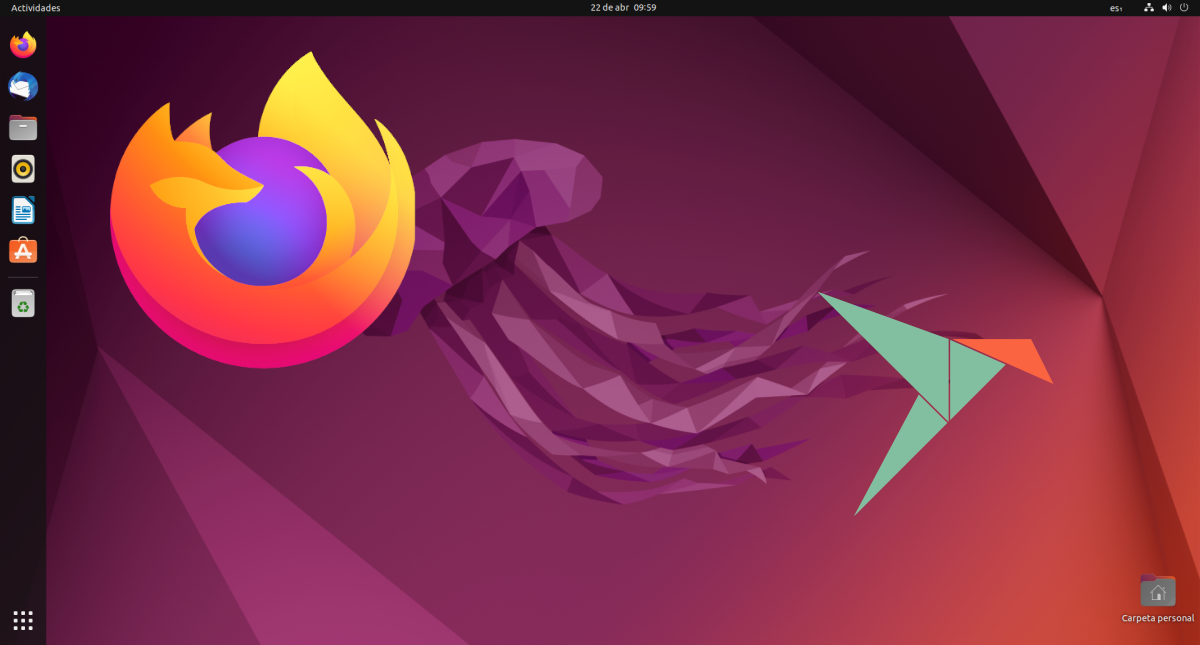
With the release of Ubuntu 21.10, Canonical took a timid but controversial step: Firefox became available as snap in its main version. The rest of the flavors were not required, but they are already since Ubuntu 22.04 has started to be available. Reading the community, I would say that this type of packages has its fans and its detractors, being among the first the most fanatical of Ubuntu and among the second those who complain about "how slow they are". But is the problem so serious?
The answer is simply no. It is not true that snap packets are slower, beyond opening them the first time. But being owned by Canonical in a non-proprietary world is tough. In any case, it was Mozilla who proposed it to Canonical, and it is already a reality that Ubuntu users can no longer install the famous browser if it is not in this version.
Who is responsible for Firefox being only as snap
According to the official version, it was Mozilla who approached Canonical and he proposed it. According to the official version. But what has actually happened? The official version is an option, but personally I don't think it's the most credible. I don't think so because I think Mozilla doesn't care; it has it as snap, as flatpak and as binaries. Here the winner is Canonical, who also have to remember that they did the same with Chromium many years ago. At the time, Ubuntu users criticized the move, and not just Ubuntu users, as Linux Mint developers are compiling Chromium to offer it from their official repositories.
Who is responsible is no longer the most important thing, beyond receiving criticism from those who do not want to touch the snaps with a stick. The fact is that is no longer available in the official repositories, unless using Ubuntu 20.04 or 21.10. And this has its good point and its bad point.
Direct Mozilla support, increased security
Until now, when Mozilla released a new version of Firefox, it could take a few hours or a few days for it to reach the official repositories. This can be dangerous, since a vulnerability can be found that is being exploited and we would have it longer than necessary. This doesn't happen on Windows or macOS, where the app updates automatically when a new one is available. In Linux, it is the distribution that takes the code, analyzes it, compiles it and uploads it to its repositories. In theory, this times is reduced to 0 when using the snap version, since Mozilla uploads it at the same time as the versions for macOS, Windows or the binaries.
In addition, this type of packages, isolated or sandbox, they are safer. It all happens within the software, so no threat escapes. So, on paper, direct developer support, instant updates, and increased security, it's all positive.
About snap speed
When we open a snap package for the first time, it has to create your configuration files. Although it is expected to improve at this point in the short term, the truth is that I have come to see videos in which Firefox as a snap has taken about 10s to open, an eternity that Linux users are not used to. But this is only the first time; then it already opens as the DEB version, or it should.
Alternatives to Firefox like snap
At the moment, since it doesn't exist as an AppImage, we have two. The first would be to go to another type of new generation package, that is, to its flatpak pack from Flathub. The other would be to install its binaries, with which we would obtain something similar to what we have in macOS and Windows. The main difference is that Firefox for Linux does not have an installer, but we have to move the binaries to the necessary folders for it to be integrated into the system. We would do it following these steps, taken out from Mozilla itself:
- We download the Firefox binaries, available at this link.
- We unzip the downloaded file. In Ubuntu this can usually be done with a double click, but in other distributions it may be necessary to open a terminal and type:
- With the folder unzipped, we move it to the /opt folder with this other command:
- Now you have to create a symbolic link or symlink to the executable:
- Lastly, a .desktop file is created and moved to the necessary folder for it to appear in menus/application drawers:
In the last step, you can also go to that website and download the .desktop manually, but you will have to put it in the same folder if you want it to appear in the start menu, app drawer, etc. The app will update itself, just like it does on macOS and Windows.
Use the DEB version
As they point out in the comments and we have been able to confirm, you can install a DEB package from official repositories, for which you had to write all this in a terminal:
My recomendation
Although I'm not one of the snap pack fans, I would recommend using the default. Canonical has designed things that way, and in all the time I've been using Firefox as a snap (since 20.10) I haven't noticed anything wrong. Even so, the good thing about Linux is that we have alternatives, and the decisions in one way or another can be made by us.
I leave you another way that seems cleaner and simpler:
sudo snap remove firefox
sudo add-apt-repository ppa:mozillateam/ppa -y
sudo apt update
sudo apt install -t 'o=LP-PPA-mozillateam' firefox firefox-locale-es
To prevent updating snaps from reinstalling it:
sudo gedit /etc/apt/preferences.d/mozillateamppa
And in the document that opens you paste this and save:
Package: firefox*
Pin: release o=LP-PPA-mozillateam
Pin Priority: 501